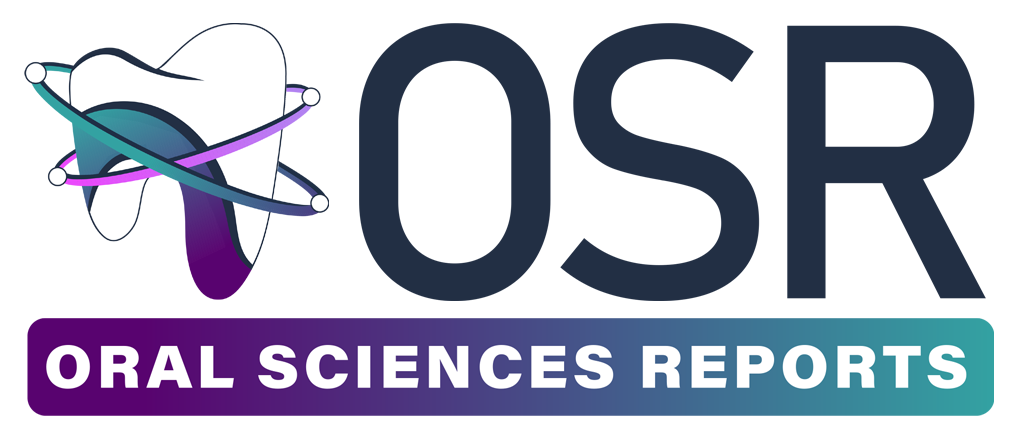Comparison of Shear Bond Strength at Various Curing Times with a High-power Light Emitting Diode Curing Unit for bonding Orthodontic Brackets
The aim of this study was to compare shear bond strength of adhesives cured by a highpower Light Emitting Diode (LED) curing unit at various curing times. Adhesive pre-coated stainless steel brackets were bonded on 140 human upper premolars with a high-power LED curing unit at 1,250 Mw/ cm2 for 2, 4, 6, 8, 10 or 12 seconds. A conventional halogen lamp with light intensity at 300 Mw/ cm2 was used for 40 seconds to cure the adhesive in a control group. Shear bond strength was measured on debonding. Statistical analysis revealed that the mean shear bond strength values recorded for the 2-, 4- and 6-second groups were significantly less than the control group. The values for the 8-, 10- and 12-second groups were not significantly different from those for the control group. In conclusion, a minimum of 8 seconds curing time per tooth using a high-power LED curing unit provides shear bond strength comparable to that for adhesives cured with a conventional halogen lamp for 40 seconds
1. Mavropoulos A, Staudt CB, Kiliaridis S, Krejci I. Light curing time reduction: in vitro evaluation of new intensive light-emitting diode curing units. Eur J Orthod 2005; 27: 408-12.
2. Serra G, Brugnera A, Elias CN, Bolognese AM. Effect of argon laser curing on the shear bond strength of metal brackets bonded with light-cured glass ionomer cement. Am J Orthod Dentofacial Orthop 2005; 128: 740-3.
3. Aljubouri YD, Millett DT, Gilmour WH. Laboratory evaluation of a self-etching primer for orthodontic bonding. Eur J Orthod 2003; 25: 411-5.
4. Cooper RB, Goss M, Hamula W. Direct bonding with light cured adhesive precoated brackets. J Clin Orthod 1992; 26: 477-9.
5. Bishara SE, Oonsombat C, Soliman MMA, Warren JJ, Laffoon JF, Ajlouni R. Comparison of bonding time and shear bond strength between a conventional and a new integrated bonding system. Angle Orthod 2005; 75: 237- 42.
6. Wiggins KM, Hartung M, Althoff O, Wastian C, Mitra SB. Curing performance of a newgeneration light-emitting diode dental curing unit. J Am Dent Assoc 2004; 135: 1471-9.
7. Mills RW, Jandt KD, Ashworth SH. Dental composite depth of cure with halogen and blue light emitting diode technology. Br Dent J 1999; 186: 388-91.
8. Campregher UB, Samuel SM, Fortes CB, Medina AD, Collares FM, Ogliari FA. Effectiveness of second-generation lightemitting diode (LED) light curing units. J Contemp Dent Pract 2007; 8: 35-42.
9. Owens BM, Rodriguez KH. Radiometric and spectrophotometric analysis of third generation light-emitting diode (LED) light-curing units. J Contemp Dent Pract 2007; 8: 43-51.
10. International Organization for Standardization Specification, ISO 10650 (1999) Detal equipment-powered polymerizable activators, Geneva, Switzweland.
11. Swanson T, Dunn WJ, Childers DE, Taloumis LJ. Shear bond strength of orthodontic brackets bonded with light-emitting diode curing units at various polymerization times. Am J Orthod Dentofacial Orthop 2004; 125: 337-41.
12. Gronberg K, Rossouw PE, Miller BH, Buschang P. Distance and time effect on shear bond strength of brackets cured with a secondgeneration light-emitting diode unit. Angle Orthod 2006; 76: 682-8.
13. Thind BS, Stirrups DR, Lloyd CH. A comparison of tungsten-quartz-halogen, plasma arc and light-emitting diode light sources for the polymerization of an orthodontic adhesive. Eur J Orthod 2006; 28: 78-82.
14. Acteon Group. 2005. “Mini L.E.D.TM.” [online]. Available http://www.acteongroup. info/pdf/Miniled_02521_ Q3.pdf (29 January 2008).
15. Artun J, Bergland S. Clinical trials with crystal growth conditioning as an alternative to acidetch enamel pretreatment. Am J Orthod 1984; 85: 333-40.
16. Ip TB, Rock WP. A comparison of three light curing units for bonding adhesive pre-coated brackets. J Orthod 2004; 31: 243-7.
17. Staudt CB, Mavropoulos A, Bouillaguet S, Kiliaridis S, Krejci I. Light-curing time reduction with a new high-power halogen lamp. Am J Orthod Dentofacial Orthop 2005; 128: 749-54.
18. Elvebak BS, Rossouw PE, Miller BH, Buschang P, Ceen R. Orthodontic bonding with varying curing time and light power using an argon laser. Angle Orthod 2006; 76: 837-44.
19. Reynolds IR. Letter: ‘Composite filling materials as adhesives in orthodontics’. Br Dent J 1975; 138: 83.
20. Bishara SE, Gordan VV, VonWald L, Olson ME. Effect of an acidic primer on shear bond strength of orthodontic brackets. Am J Orthod Dentofacial Orthop 1998; 114: 243-7.
21. Murfitt PG, Quick AN, Swain MV, Herbison GP. A randomised clinical trial to investigate bond failure rates using a self-etching primer. Eur J Orthod 2006; 28: 444-9.
22. Fox NA, McCabe JF, Buckley JG. A critique of bond strength testing in orthodontics. Br J Orthod 1994; 21: 33-43.
23. Al Shamsi A, Cunningham JL, Lamey PJ, Lynch E. Shear bond strength and residual adhesive after orthodontic bracket debonding. Angle Orthod 2006; 76: 694-9.
24. Bowen RL, Rodriguez MS. Tensile strength and modulus of elasticity of tooth structure and several restorative materials. J Am Dent Assoc 1962; 64: 378-87.
